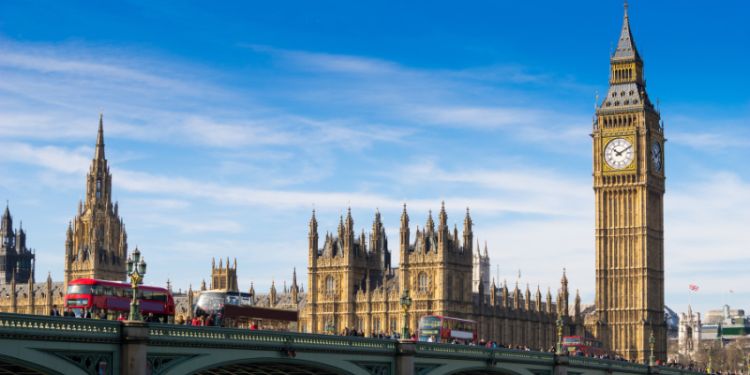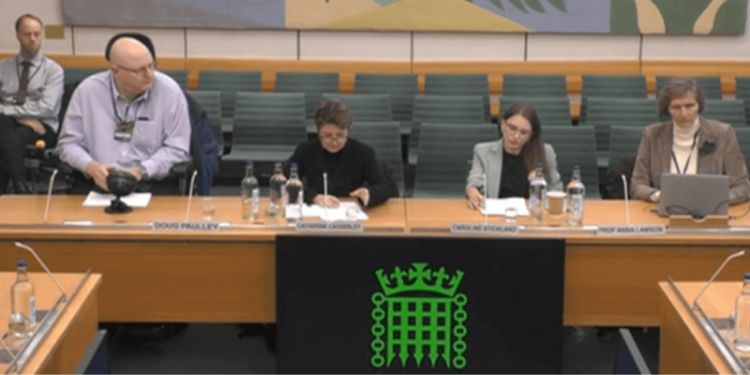Prominent blind School of Law Professor only academic to be invited to give oral evidence to UK Parliament’s Transport Committee

Professor Anna Lawson recently gave evidence to the House of Commons Transport Committee’s inquiry on transport accessibility legislation.
The Panel, which took place on 25 October 2023 at Portcullis House, Westminster, was the second session of the Transport Committee’s inquiry into accessible transport, an investigation into what the Chair, Iain Stewart, described as the “appalling experiences that disabled people often have when travelling”. The panel were asked to give evidence as to whether they believe the fault lies with the regulations and legislation themselves, the enforcement of these, or a mixture of both.
Professor Lawson, who specialises in human rights and disability law, joined a panel including Doug Paulley (Accessible transport campaigner), Stephen Brookes MBE (Rail Policy Advisor at Disability Rights UK), Catherine Casserley (Barrister at Cloisters Chambers) and Caroline Strickland (Chief Executive Officer at Transport for All).

Doug Paulley, Catherine Casserley, Caroline Stickland and Professor Anna Lawson at the committee. With permission from Disability News Service.
This inquiry is of particular importance, since it has been revealed that disabled people make far fewer trips than non-disabled people − 38% less, according to panellist Caroline Strickland. This means that disabled people are potentially being blocked from enjoying key human rights such as the right to be free from discrimination; to live independently and be included in the community; personal mobility; health; education; work and employment; participation in cultural life; recreation; leisure and sport; and participation in political and public life. The reasons for this include but are not limited to: inaccessible physical infrastructure and vehicles; lack of audio-visual information; unfair charging times in taxis; lack of awareness of accessibility obligations; and attitudinal barriers (for example, of other passengers and transport staff).
With regards to bringing a complaint or a case about inaccessible transport, Professor Lawson flagged the difficulty of accessing complaint channels, the complexity of discrimination law, the lack of solicitors engaged in this work, and the huge financial risk to the complainant.
In theory, accessibility should be embedded in our public transport mechanisms. In practice though, this isn’t happening – with major impacts on the lives of disabled and older people all around the country. Our law and policy needs to step up – it’s time for something like a new Accessible UK Act.
The evidence from the panel will influence the Transport Committee’s conclusions and recommendations as a result of the inquiry. Professor Lawson’s involvement in this panel speaks to her authority in this field and the impact that her work has and will have on disabled people’s access to public transport.
The evidence session can be watched in full here, and a full transcript of the session is available here.




